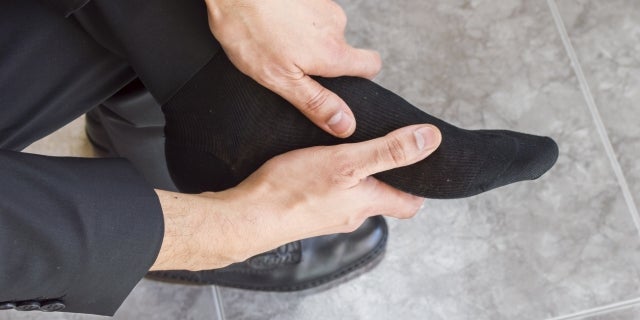Nerve and circulatory damage from high blood sugars and high blood pressure, known as peripheral neuropathy, can affect the feet or hands. This can make feet less able to feel pain, heat or cold or make them more sensitive to pain or touch. Dry or cracking skin and open wounds can become more common and heal less quickly, increasing the risk of becoming infected. If an infection develops and is not treated, removal (amputation) may be required. In fact, diabetes is the leading cause of non-traumatic lower-limb amputation in our country.
For those living with diabetes, daily foot care can help prevent these severe complications.
DO EVERY DAY:
· Check your feet daily, using a mirror or the help of a friend or family member. Check between the toes, looking for skin color changes (redness), ingrown/fungal toenails, calluses or blisters, swelling of foot or ankle, open sores or scratches, cracks in the skin, or hot or cold spots.
· Wash your feet daily with mild soap and dry them gently, especially between the toes.
HEALTHY HABITS:
· Wear comfortable, supportive shoes with clean socks.
· Replace shoes every 6-9 months.
· Stop smoking or using tobacco products.
· Have your doctor examine your feet at every visit.
· Cut toenails straight across and use a file on the rough edges.
· If you have a history of foot problems, consider seeing a specialist (podiatrist).
AVOID:
· Never wear shoes that irritate your feet.
· Never go barefoot; feet need protection.
· Do not soak your feet for extended periods of time (longer than 5-10 minutes).
· Avoid high heels, narrow cowboy boots or open toed sandals.
· Avoid using heating pads, electric blankets or microwave devices as these can cause burns.
Diabetes can be prevented and/or controlled. Talk with your doctor about your feet or ask a Certified Diabetes Educator at Hillcrest Center for Diabetes Management for more information. To speak to a diabetes educator, call 918-579-3385.

